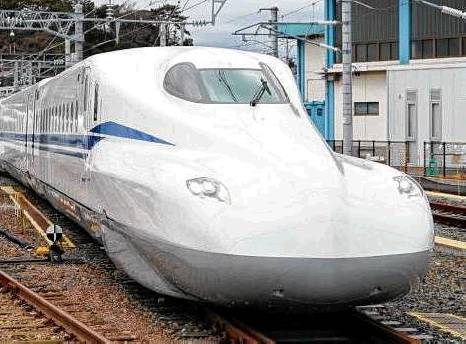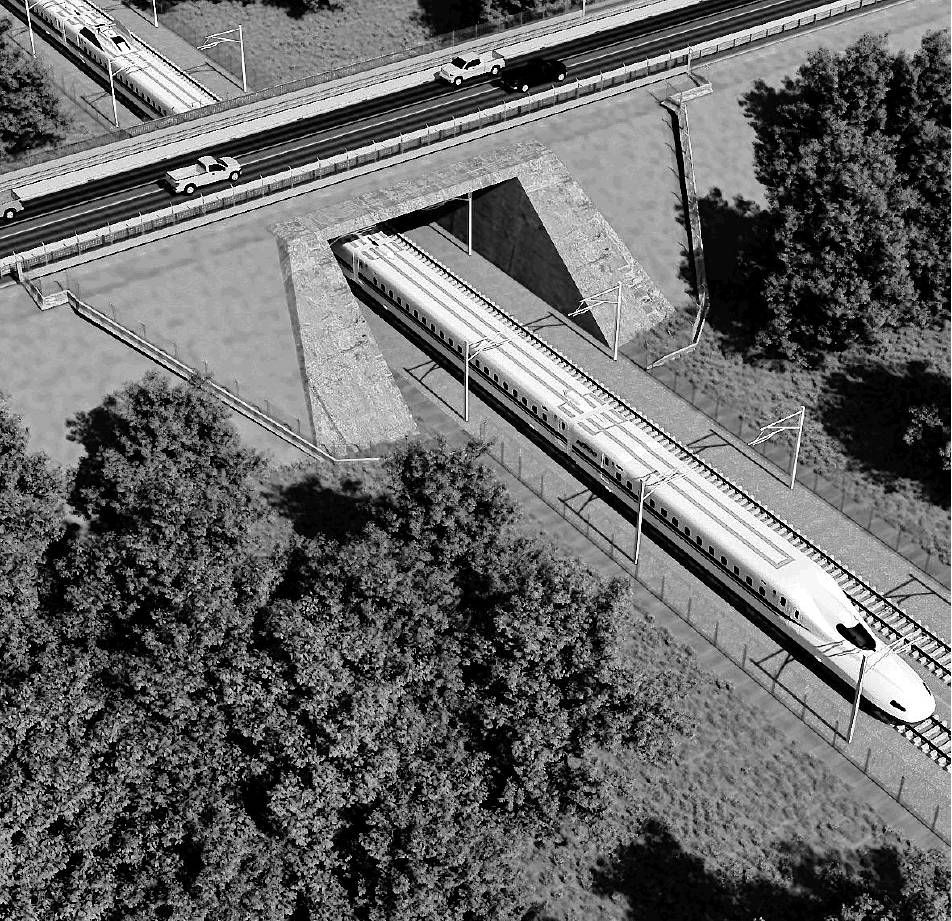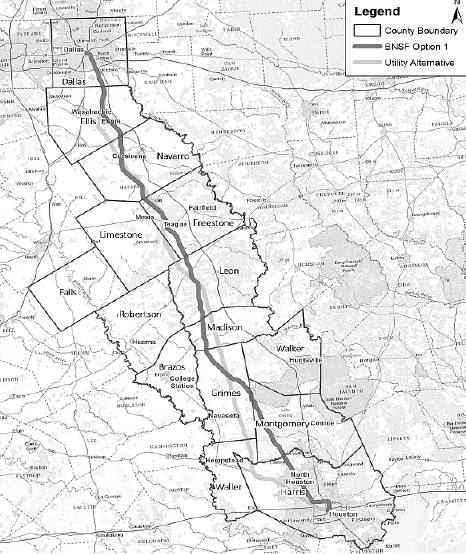Texas bullet train has a builder, but it’s still far from the end of the line
By Dug Begley STAFF WRITER
A planned high-speed rail line between Houston and Dallas reached another milestone Friday as the sponsoring company announced a $14 billion deal to build it — as soon as it obtains the authority to do so.
Texas Central, the private company developing the Texas Bullet Train, announced it had signed a deal with Salini Impregilo, the Italian construction giant, and its American subsidiary, Lane Construction, to design, construct and install the 240-mile high-speed rail line using Japan’s Shinkansen trains.
“This agreement brings us one step closer to beginning construction of the civil infrastructure segments of the project,” Texas Central CEO Carlos F. Aguilar said in a statement.
The deal is valued at $14 billion and is contingent on a number of factors and decisions, ranging from federal approvals to raising billions from private investors. Still, the announcement is the most concrete step toward construction of the train — expected to whisk travelers to and from Houston and Dallas in 90 minutes with a stop in the Brazos Valley.
“We are optimistic we could begin construction next year,” said Holly Reed, managing director of external affairs for Texas Central.
Critics who have vigorously resisted the project downplayed the significance.
“I don’t see it being anything new; it is the same thing they announced last year,” said Kyle Workman, president of Texans Against High-Speed Rail.
Texas Central and Salini announced last October that they were proceeding with some design and early engineering of the project.
“We don’t really know what it is,” Workman said of Friday’s announcement. “They have a tendency to laud these steps forward when in reality there is not much substance behind them.”
Reed disagreed, calling the announcement a milestone that reflects readiness to break ground one day. Salini and Lane, she said, will proceed with some design and details of the project with the agreement in place, including further design of planned grade separations.
Salini is a well-known name in construction across the globe, with 35,000 workers who have built a range of infrastructure from roads to airports. The company was part of a massive joint venture that widened the Panama Canal in 2016. The group was forced to repay $836 million to the canal authority because of disputed cost overruns, with Salini responsible for $334 million.
Lane, which Salini acquired in 2016, built major portions of Interstate 35 and its managed lanes in the Dallas area.
Because the trains would operate at more than 200 mph, all of the route must be separated from highways and public access. Dozens of overpasses are likely as the tracks cross urban streets and rural roads in 11 Texas counties. Earthen berms at specific crossings will also be needed where tracks cross land used by wildlife and farmers.
“They are doing all of that work now so that as soon as we get the financial approvals and have approval to start construction we can move forward,” Reed said.
In Houston, the company has wide support from city and business officials, along with eager travelers.
“I guess we’ll wait and see if it ever gets built, but I for one want it,” said Tom Ahrens, 55, as he ate lunch near Greenway Plaza.
Ahrens called American cities “way, way behind” peers in Europe and Asia when it comes to intercity travel, something he blamed on car companies.
“I’ve been waiting for a train to Dallas my whole life,” he said.
Long road ahead
Under the best of circumstances, Ahrens will wait years more. If construction begins next year, passengers could start hopping aboard trains in 2026, at prices the company said are comparable to airline prices and would fluctuate similarly based on when a fare is purchased.
Hopes to break ground faded from 2017 to 2018 and now are optimistically set for 2020, awaiting approvals.
The Federal Railroad Administration still must develop safety standards and rules specific to the Texas Central project and approve the plans for the project, as the company spars with Texas landowners over use of eminent domain to acquire some of the land
The property acquisition has faced intense opposition from rural residents who fear the train’s construction will ruin their peaceful pastures and lifestyles. Angry landowners have refused to allow surveys and opposed in court the company’s right to condemn property, arguing that since Texas Central owns no tracks or trains, it is not entitled to the eminent domain rights extended to railroads under Texas law.
A district judge in Leon County — where much of the opposition to the train is centered — ruled the company was not entitled to eminent domain rights. Texas Central challenged that ruling, which is awaiting consideration by justices in Corpus Christi.
Optimism on both sides
Meanwhile, Texas Central could also receive eminent domain authority from the federal Surface Transportation Board. The board declined to characterize the project as interstate because it would operate only within Texas.
The company has asked the board to consider its request again, based on an agreement with Amtrak, because Texas Central would operate a route Amtrak does not, with an agreement to partner with the national rail agency to connect to Oklahoma-bound trains.
Workman said opponents are confident they will prevail with the surface board in Washington and the appellate court in Corpus Christi.
“At this point, we are sitting fine,” he said, suggesting Texas Central’s announcement was an attempt to drum up positive news.
Texas Central officials are just as optimistic.
“We are confident we will get a positive ruling on the merits,” Reed said. dug.begley@chron.com twitter.com/dugbegley


